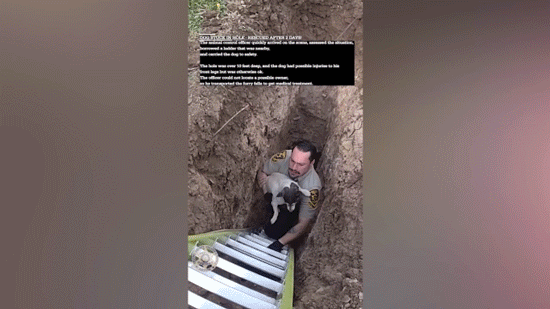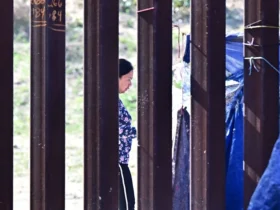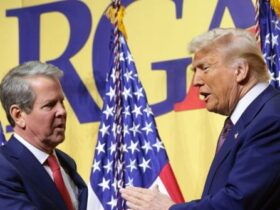Catholic Charities has spent more than a century caring for Wisconsin’s poor — but a state court says that work isn’t “religious” unless it involves preaching or proselytizing.
The Supreme Court will hear arguments Monday in a First Amendment case brought by Catholic Charities Bureau of the Diocese of Superior, which says it’s being penalized for living out its faith without preaching it. The group, which has served Wisconsin’s neediest for more than a century, is asking the justices to overturn a state court ruling that deemed its work “non-religious” — barring it from joining the Catholic Church’s unemployment insurance program.
Under Wisconsin law, religious nonprofit organizations can opt out of the state-run program and join a church-run alternative. But the state’s high court said Catholic Charities didn’t qualify, because it serves everyone — not just Catholics — and doesn’t evangelize.
That’s precisely the point, according to the group’s lawyers with the Becket Fund for Religious Liberty. “Since Catholic Charities operates out ‘of the religious motive ‘of the Catholic Church … serving the underserved,’ its primary purposes are religious,” according to the group’s high court petition.
The Trump administration agrees, filing a brief supporting Catholic Charities and warning that Wisconsin’s stance could lead to unconstitutional government meddling in church affairs. In its filing, the administration argued that the state misinterpreted both federal and constitutional law by excluding Catholic Charities from a religious exemption under Wisconsin’s unemployment program, an exemption modeled on the federal Unemployment Tax Act.
The Wisconsin Supreme Court ruled against Catholic Charities last year, finding that the organization did not qualify for a religious exemption under state law because its services were not “inherently religious.” In a 50-page decision, the court acknowledged that Catholic Charities was motivated by faith but concluded that its activities — such as assisting the poor, elderly, and disabled — could just as easily be performed by a secular nonprofit group. Because the charity does not limit its services to Catholics or attempt to evangelize, the court determined it was not “operated primarily for religious purposes,” as the exemption requires.
Justice Department lawyers wrote in a brief that the Wisconsin Supreme Court wrongly focused on whether the charity’s activities appeared “secular” rather than considering the religious motivation behind them. That approach, the DOJ said, not only misreads the statute but also violates the First Amendment by entangling the government in religious determinations and discriminating against faith-based organizations that express their mission through service rather than proselytization.
SUPREME COURT TAKES CATHOLIC CHARITIES BID TO EVADE STATE UNEMPLOYMENT TAXES
The high court’s ruling could affect how faith-based organizations nationwide qualify for religious exemptions, and whether religious expression must look like a Sunday sermon to count.
For now, Catholic Charities’ mission continues across 60 communities. But its future as a legally “religious” group may depend on nine justices who’ll decide whether mercy, minus the preaching, still counts as ministry.
















Leave a Reply